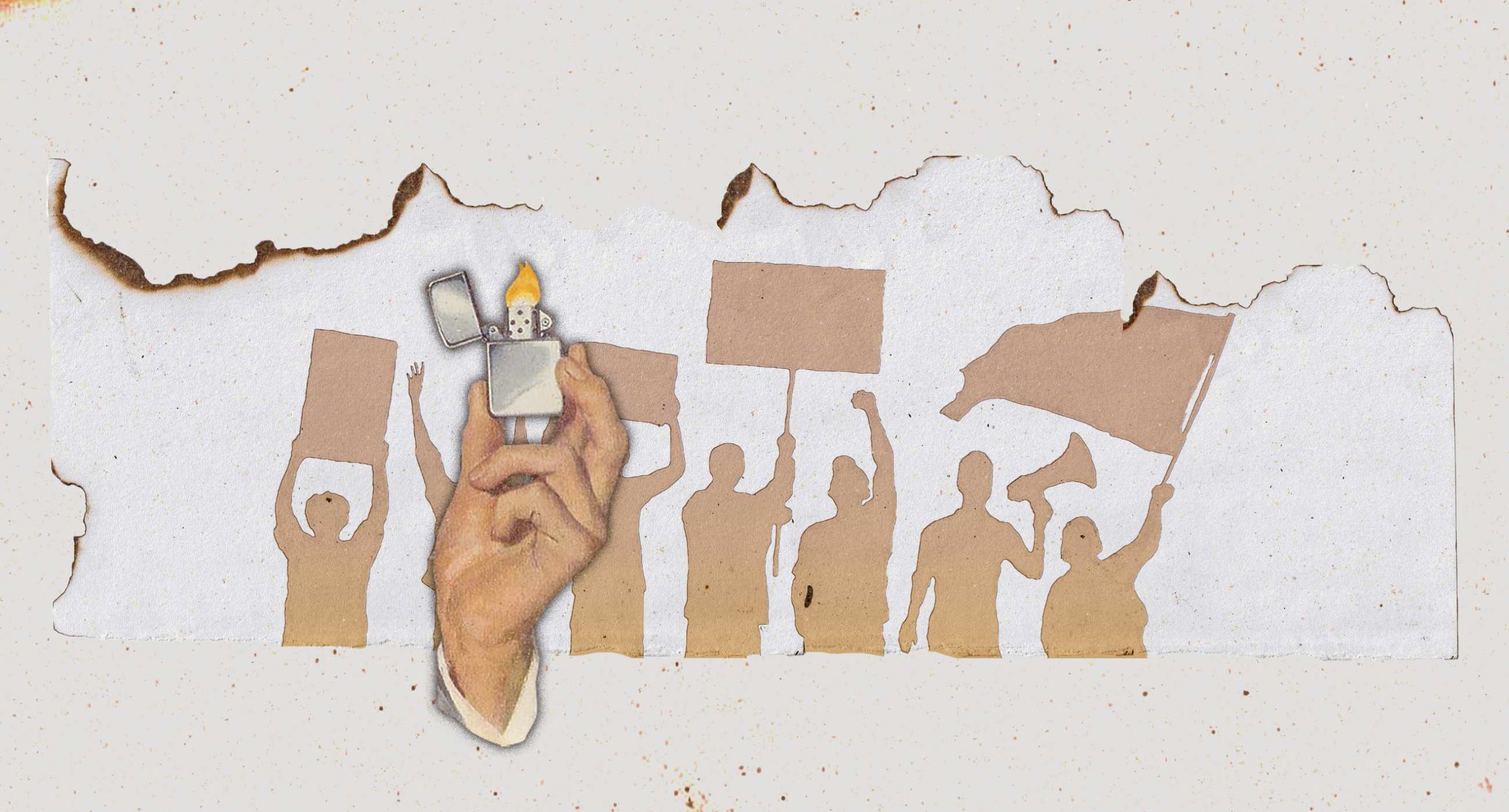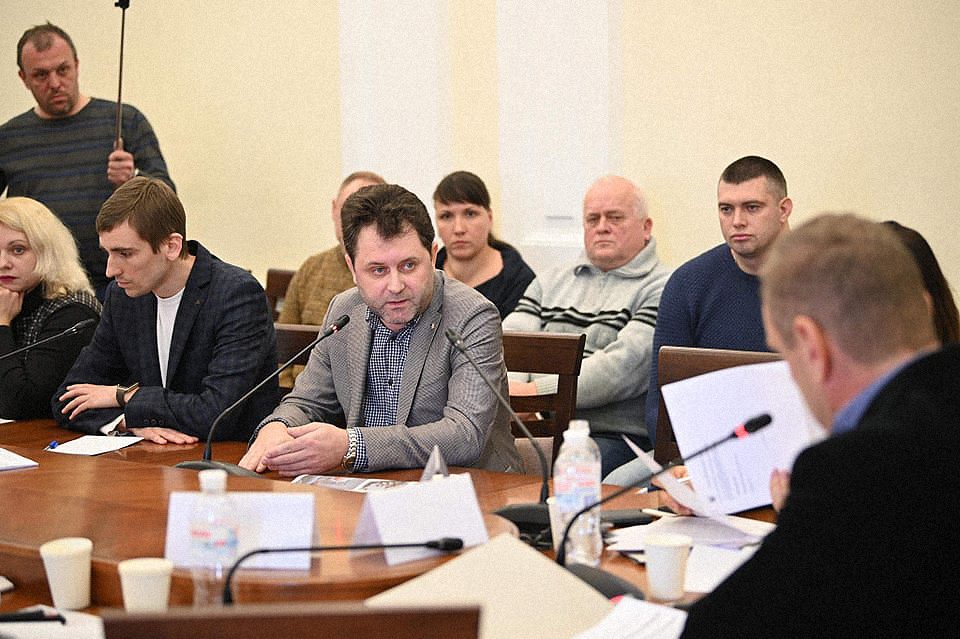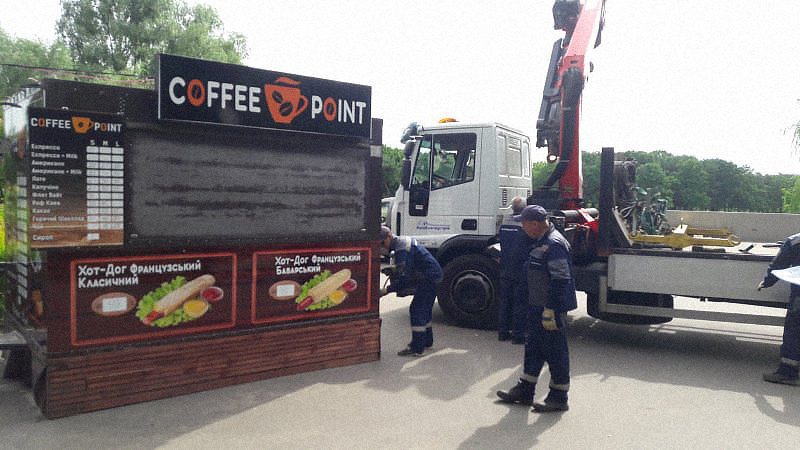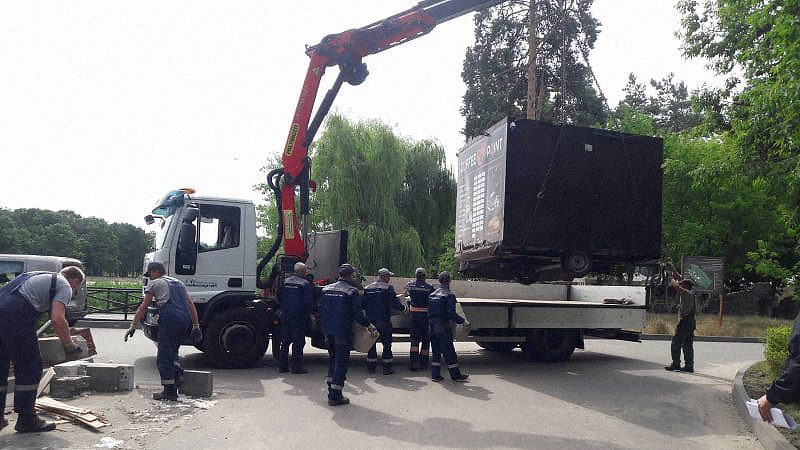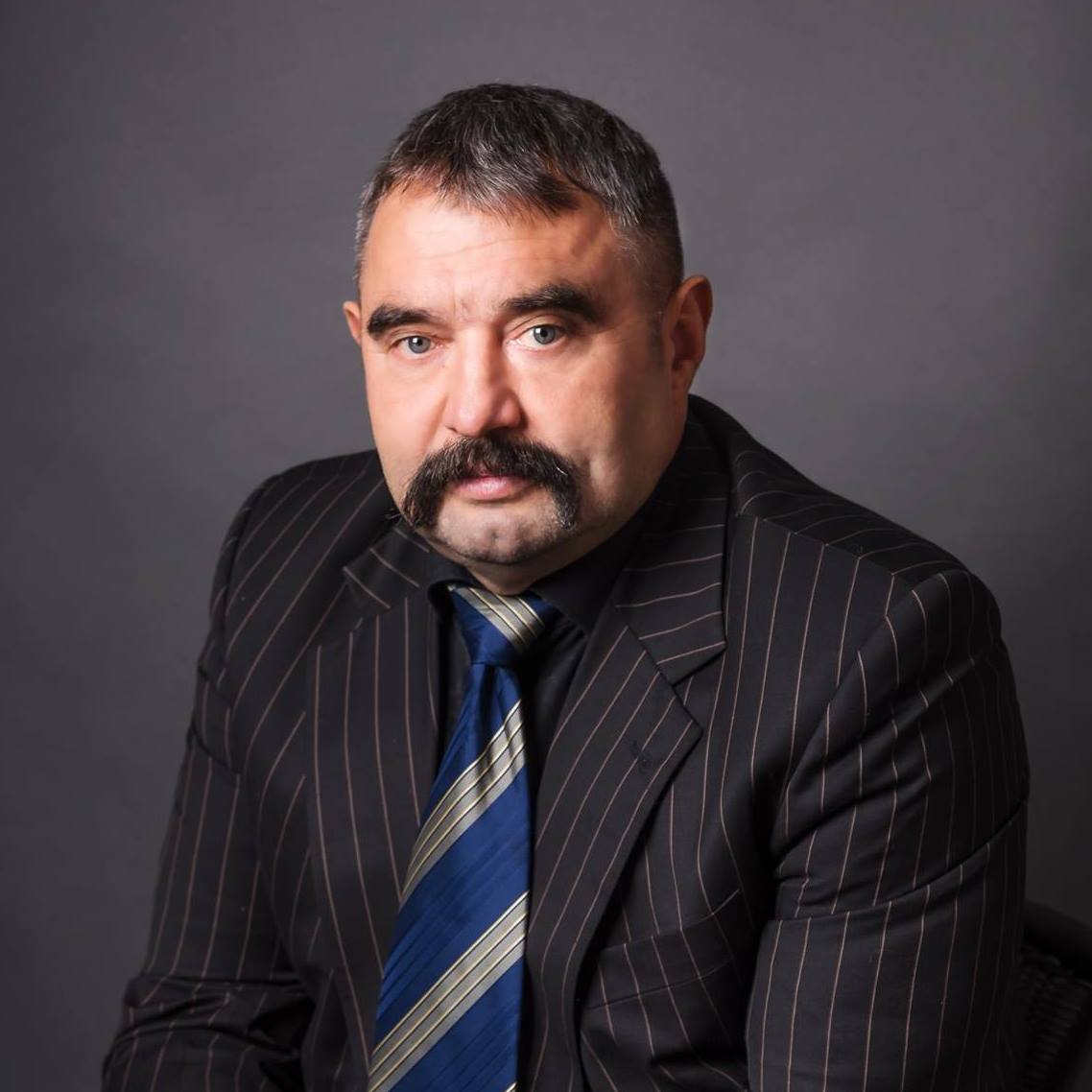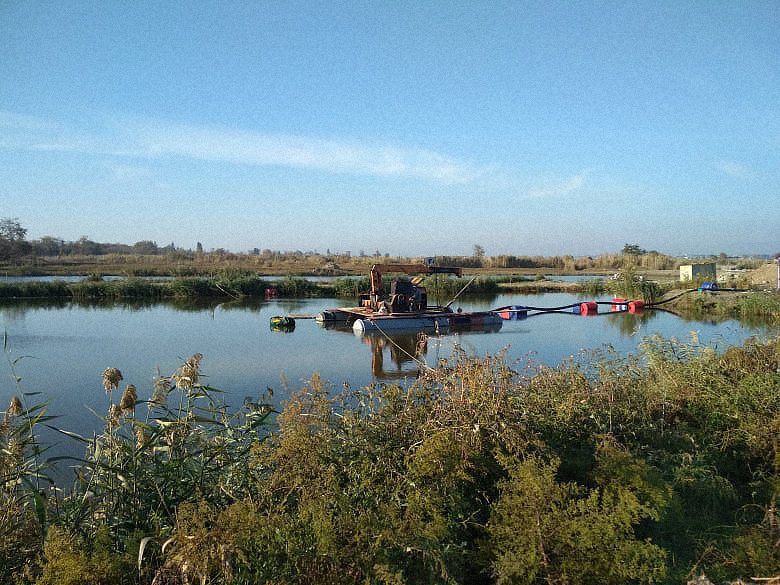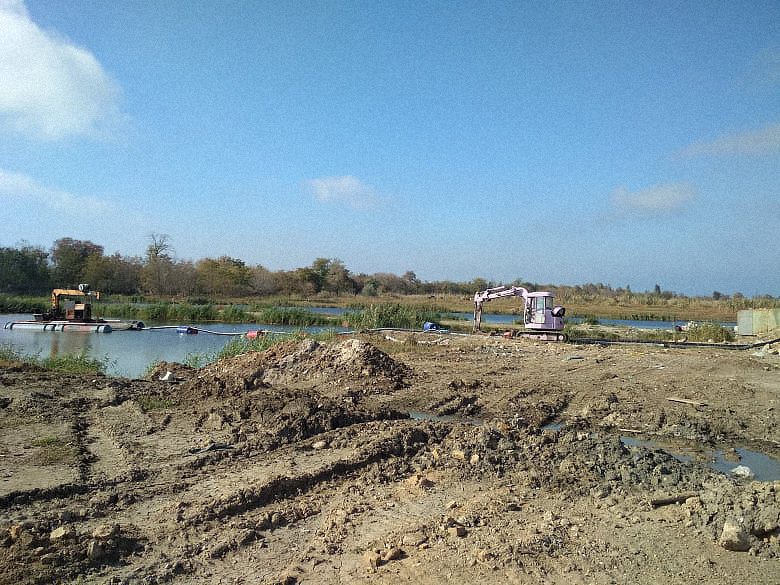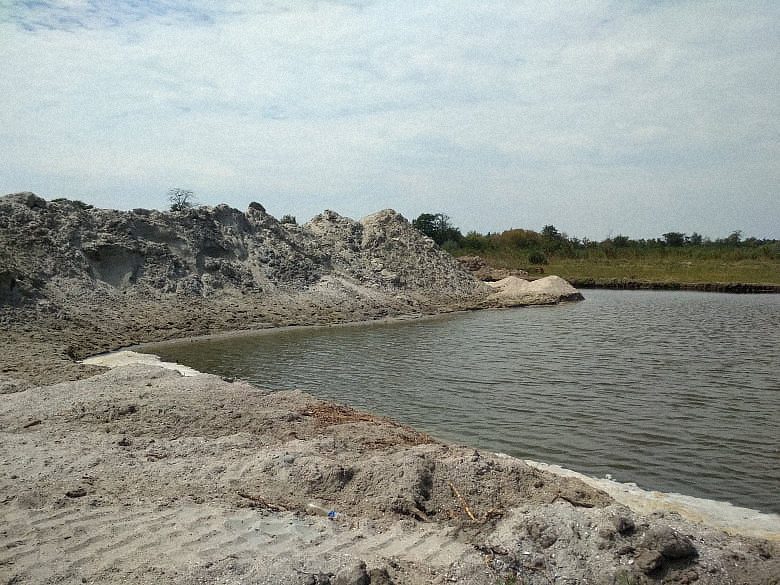On July 16, an activist’s car was torched for the second time in six months in Rubizhne, a town in Luhansk region. On July 15, in Dnipro, two unknown figures assaulted a local human rights defender. On July 7, a car belonging to the daughter of an Odessa-based activist was burned to the frame. On June 22, a similar story occured to an eco-activist in Kyiv. This is just a small sample of attacks on community activists in the past month. Since 2019, Ukraine has seen a sharp rise in the number of persecutions carried out against those fighting against corruption, illegal constructions, and human rights violators. Zaborona spoke to several of the affected activists and explains why crimes against activists will only increase.
“We’re Not Running Around With Signs. Our Tools: A Computer and Printer.”
At around 3 am on June 22, 2021, a car burst into flames near one of the apartment buildings in the Kyiv neighborhood of Nova Darnytsia. Two unknown figures had poured some sort of liquid over the car, and hid. The fire on the car spread to neighboring ones, and then to the cars parked outside in the courtyard – they were all damaged. The initial burnt car belonged to a Kyiv eco-activists named Oleksandr Silchenko, aka Oleksiy Kot (cat in Ukrainian – ed.) Since 2016, Kot has been fighting against illegal construction in parks in Darnytsia.
“Our neighbors called us in the middle of the night and said ‘Sasha, your car is in flames!’ I’m on the balcony – it’s definitely burning,” Silchenko recalls the events of that night to Zaborona. “We called firefighters, the police. Though at that time, everything had already burnt to the ground, while no suspects have yet been found.”

Oleksandr Silchenko (center). Photo provided by Oleksandr Silchenko
Silchenko believes the arson against his car is connected to his work as an activist. He says that, while working with the “Parks of Darnytsia” community organization, they’ve had the time to “annoy many.” As if to confirm Silchenko’s suspicions, not long after the arson, he received a call from an unknown number. The conversation began with the phrase: “You must understand – if you keep shoving your nose into other people’s business, then you should be ready for problems,” Silchenko remembers. He doesn’t know who called him, as the police have yet to identify the caller.
“They thought to scare me with these methods. But this has all only provoked me. If it’s come to that, then we’re just considered cattle who don’t even have the right to their own voice. That option doesn’t suit me,” says Silchenko.
He’s a Kyiv resident who grew up in Kyiv’s Darnytsia district, and has tracked, over the years, how his district has changed: the spread of formless apartment buildings, the loss of green spots, the formation of a “concrete ghetto.” In 2016, Silchenko was far from activism: he bought damaged cars with his brother, repaired them, and resold them for more money – running a sort of family business. But five years ago, his patience snapped. That same year, in the Poznyaki neighborhood not far from Darnytsia, a company called “Zhitloinvestbud-UKB” began building a 27-story building that would contain 1,300 apartments on the location of a local lake, Utinoye. Local residents were incensed. They gathered up a group of willing volunteers through social media to protest.
“We were called through Facebook. I came there and ended up [in activism] for the long haul,” Silchenko says. In 2016, he and other opponents of construction ended up having to join protest demonstrations and even have conflicts with titushki (a Ukrainian term for street thugs, often young, athletically-dressed men who are typically called to break up protests or provide a physical presence – ed.). But the lake was defended.
Later, Silchenko defended the Park of Partisan Glory, also in Darnytsia. The park belongs to the natural reserve fund of Ukraine. He, along with others carrying similar complaints, first wrote letters to the local authorities and convinced them to remove the paid swings that were surrounded by fences from the center of the park. Then, over 30 coffee kiosks, which interfered with pedestrian paths, were removed from the park. Now they’re trying to get rid of a ‘self-authorized’ restaurant built on park premises – it used to be called Kolyba, now the Forest Cafe. In order to ‘unsettle’ the business from the park, Silchenko turned to the ecological inspection service, the Kyiv city administration, and the police. Finally, Silchenko states, it was decided on April 14 that the restaurant needed to be demolished, but it continues to operate for some unknown reason.
In 2021, Silchenko, along with some compatriots, registered the community organization “Parks of Darnytsia” in order to make it easier to fight businesses engaged in illegal construction. He says that previously, when they were working purely as private citizens, they were “seen as local village idiots, who themselves don’t know what they want.” Now it’s “easier to get to city councils, to regional ones,” and actually exert influence on decisions.
“We don’t engage in protests, where [people] run around with signs and yell inarticulately. Our tool – a computer, printer, and visits to official commissions and meetings,” the eco-activist explains. “If we’re trying to build a law-based government and demand justice, then we need to act legally.”
Regardless of his intent to keep fighting, Silchenko admits that as an activist in Ukraine, he doesn’t feel safe. This is why apathy sets in, because it turns out that the ones who have the money have the truth. Silchenko doesn’t rule out being targeted for further attacks. If previously, threats were limited to “children’s accusations in Facebook of the ‘Let’s meet’” variety, then today they’ve risen to the level of active harm.
“But I’ll continue doing what I do,” Silchenko insists. “Otherwise, what’s the point of even living in this country?”
‘Hot’ spots
In 2019, human rights defenders counted 83 persecutions of civil activists. This number rose to 101 in 2020, as evidenced by the data of the annual report of the Human Rights Center ZMINA. In addition to this, the Association of Ukrainian Human Rights Monitors on Law Enforcement counted, from July 2020 to June 2021, 107 incidents of persecution and pressure on civil society representatives. That is, the first six months of this year is on track to match the previous one, in terms of attacks.
The most dangerous spheres of activism remain the fight against corruption, environmental defence, and LGBT+ rights defense. The ‘hot’ spots where attacks happen most often have been identified by human rights defenders as the Kyiv, Odessa, and Kharkiv regions. The more resources a city and region have, the more conflicts erupt.
For example, the Kharkiv-based lesbian-feminist organization Sphere has been attacked 28 times since 2017: their windows were broken and animal livers have been tossed at their building, Kateryna Mitieva, a spokesperson for Amnesty International Ukraine, tells us. The police have only opened three criminal investigations into the attacks, and even those aren’t being properly investigated.
Over the past eight years in Ukraine, it’s gotten easier to hold mass protests and civil gatherings, as the police and the authorities compromise and provide security. But these positive trends don’t extend to the question of defending the rights of actual activists, explains Mitieva.
“If we’re talking about LGBT activists, then the problem is the fact that the law has no articles addressing hate-based attacks in the context of homophobia. [If we were to talk about other spheres], then this is a problem with both the police, and the law. If it’s persecution, stalking – there won’t be any conviction. Cases involving assaults or property damage are better investigated, though not always. Activists working in the anti-corruption sphere or for environmental defense affect the interests of big business and highly-placed politicians. We’re talking about big money, which is why it’s very dangerous,” says the Amnesty spokesperson.

Kateryna Mitieva
It all turns into a vicious circle, she says: law enforcement bodies can’t properly safeguard people, which is why attacks happened, for which no one is punished, and, as a result, the violence or persecution continues. Mitieva ascribes the helplessness of the police with a “lack of autonomy” from highly-placed and wealthy people in the country.
“I Started Digging Deeper When the Threats Started”
Leonid Kolesnichenko has been fighting against illegal sand mining and trash disposal in Odessa since 2011. He’s a former soldier and a retired police officer. He says that he noticed the problems a decade ago, when sand from Odessa quarries began to disappear by the tons, and trucks full of trash started regularly going towards the quarry.
“Odessa used to have a lot of filtration fields [where wastewater was cleaned for use by local residents for irrigation],” Kolesnichenko tells Zaborona. “But in the 1970s, these fields gave rise to a cholera epidemic – Odessa was closed for two months, and residents were forbidden from using the water from those fields. Now this site contains a sand quarry and several ponds.”

Leonid Kolesnichenko
The activist says that he’s personally seen how trucks take sand from the quarry day and night, nearly every day. It’s used for building multi-story apartment buildings, as well as kindergartens and playgrounds. Kolesnichenko suspects Odessa construction company Budova as the illegal mining, as well as Odessa mayor Gennadiy Trukhanov. (You can read more about the links between the mayor and the Budova company in our investigation.)
Kolesnichenko estimates the profit from this illegal mining venture to reach up to nearly $37,000 per day. He’s also worried about the ecological impacts: the sand is soaked in chemicals because a dump has been constructed nearby, filled with household and medical waste, as well as animal corpses.
“We sent the sand for analysis at a laboratory. They told us the sand contained the entire periodic table,” the activist recalls.
In order to end this criminal scheme once and for all, Kolesnichenko, along with Odessa-based journalist Elena Kravchenko and activist Oleh Mikhailik and others – as Kolesnichenko says, the ones who are “in the know” – regularly write complaints to the regional administration, to the mayor, president, the government, and the police – all to deafening silence. Kolesnichenko once counted that he’d called police out to the site 20 times in a single month. Yet his efforts have gone nowhere: for a response, the activists have only gotten excuses, that it’s not in someone’s jurisdiction, that the police can only open an investigation into theft. Subsequently, the case was re-qualified as “a violation of the rules for the protection or use of subsoil,” though not a single suspect has been found three years later.

Picture provided by Leonid Kolesnichenko
His persistence nearly cost Kolesnichenko his life: someone tried to shoot him in 2019 on the filtration fields, and that same year someone threw a grenade at him. He got lucky – he managed to hide behind a car. In 2020, people angry at Kolesnichenko’s work came to his house and burnt down his car in his own yard. The cops opened an investigation, but failed to uncover any suspects. And on June 18, 2021, someone torched his daughter’s car as well, which was parked in a garage. The investigation into that case has turned up empty as well.
“I started digging deeper when the threats against me started,” Kolesnichenko explains. “I’ve passed the scared-intimidated stage of my life. But I have a daughter, a granddaughter, and I want them to live in a country where the laws work.”
An Awareness and Willingness to Act
Ukraine, when compared to its closest neighbors – Russia, Belarus, looks quite good when it comes to the ability to be an activist, believes the Amnesty International spokesperson Mitieva. In those countries, it’s nearly impossible for people to exercise their rights even during protests. In Ukraine, there’s at least a democratic basis for it. But on the background of the pandemic, even in E.U. countries and the United States where activist culture is more pronounced, it’s gotten harder to assert your rights. It’s even more complex in Ukraine when corruption and the lack of legal literacy is added in. Zaborona has previously reported on how to defend yourself and avoid being charged for self-defence, as well as how to act when you’ve been a victim of sexual assault.
Changing this situation is possible if civil society begins pressuring law enforcement to actually investigate crimes and to charge suspects, Mitieva believes. That’s when the country will have precedent, and attackers will know that they might have to pay for their actions. As for the activists, Amnesty advises them to see things through. And if local law enforcement and courts refuse to consider their case, then they should file complaints with the European Court of Human Rights. In that case, the country’s reputation is at risk, which is why the higher authorities will start paying attention.
“You need to be interested and know your own rights, and understand when you should and when you need to go to the police, and to not be apathetic if you witness a crime. We’re talking about being aware, being informed, and being ready to act,” Mitieva explains.

